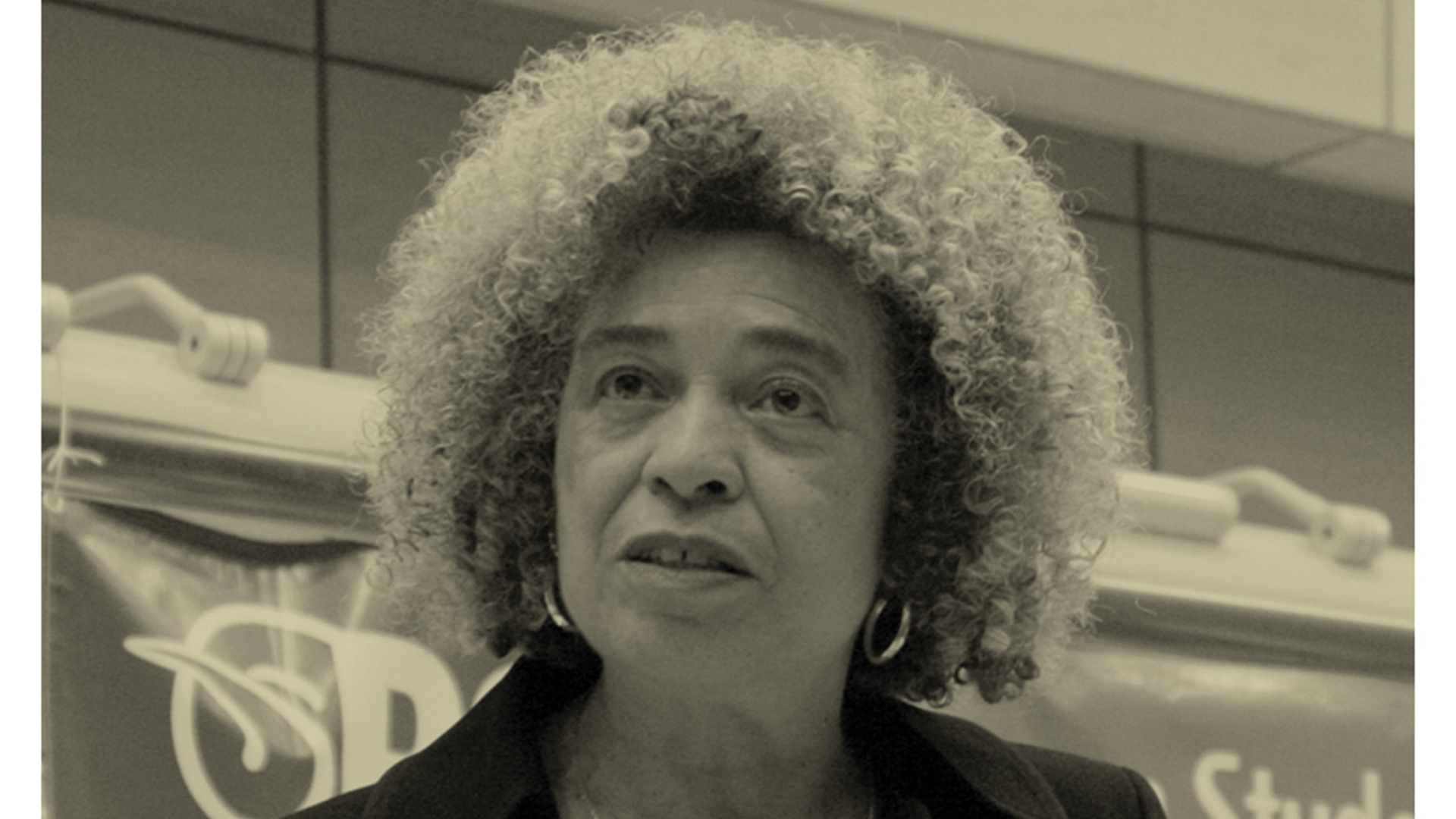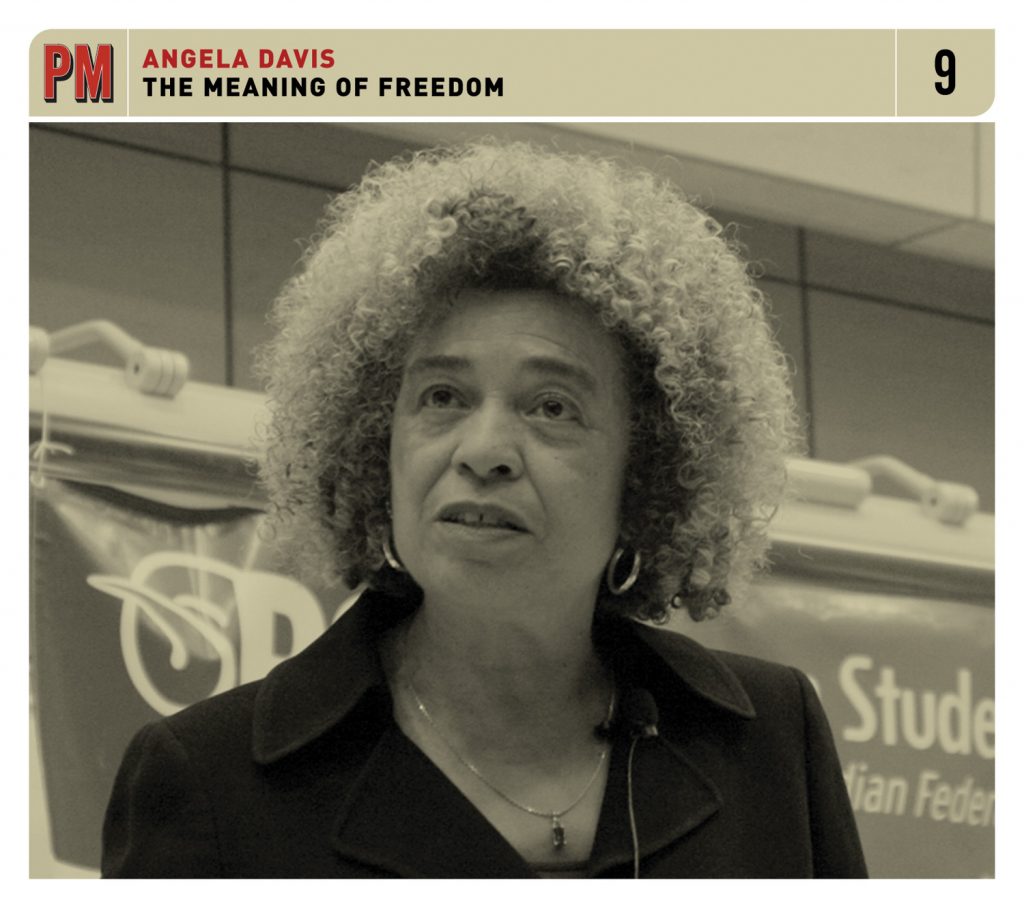by John Duerk
Political Media Review
November 11, 2011
Angela
Davis has written and lectured extensively on a variety of historical,
social, political, and economic issues. This 2008 talk is a great
introduction for anyone who would like to learn more about her thoughts
on race as it relates to our proclivity for incarcerating people by
the millions here in the United States.
As someone who has
taught in a state prison, I’ve thought a lot about a number of the
concerns that she raises in this lecture. For example, a majority of
the 13 million people who enter and exit some level of the penal system
each year are people of color. Moreover, the practice of removing
someone from society by itself does not teach an individual what he or
she needs be a productive citizen upon release. Consequently, inmates
too often experience a “civil death” because they are not
reincorporated into the communities from which they came. All of this
is very important for us to reflect upon if we have any intention of
reevaluating how we address criminal behavior.
However, her
most profound argument involves the connection between slavery and the
current prison system. Davis acknowledges the advancements that have
been made in society (e.g. abolition of the slave trade, 13th
Amendment, Civil Rights Act of 1964, and the Voting Rights Act of
1965), but asks: “What about the whole scaffolding of racist ideology?”
that persists today despite the commonly cited benchmarks of progress.
Racism once manifested itself as the institution of slavery, but now
it does so in the form of mass incarceration. In addition, this is
further complicated by the fact that “prisons thrive on inequality” and
hide social ills from us because sentencing people is much easier than
determining what is wrong with them.
Beyond the ideology of
racism, the relationship between our brand of democracy and capitalism
allows the prison system to grow. Private companies see the opportunity
to take advantage of incarceration rates, thereby leading to increased
privatization of facilities and massive profits. The more time,
energy, and money diverted toward prison building (both public and
private), the less attention that is paid to other important issues
like schools and employment. Furthermore, our system becomes a model
for other countries.
While Davis thoroughly examines the
intersection of race and incarceration, she could expand on what can be
done to counter the problem. Yes, challenging people to rethink our
conception and practice of democracy is important, but the list of
suggestions that she briefly mentions at the end (e.g. living wage)
could be explored in greater depth. People can rely upon their
imaginations to visualize new approaches, however providing them with
more direction is imperative when it comes to complex issues like this.
Angela Davis has long been an influential activist-scholar. Her work
challenges you to reassess what you know about race as her analysis of
ideology and institutions is unlike any other. I highly recommend that
you listen to this lecture because the argument(s) she makes is (are)
powerful.







